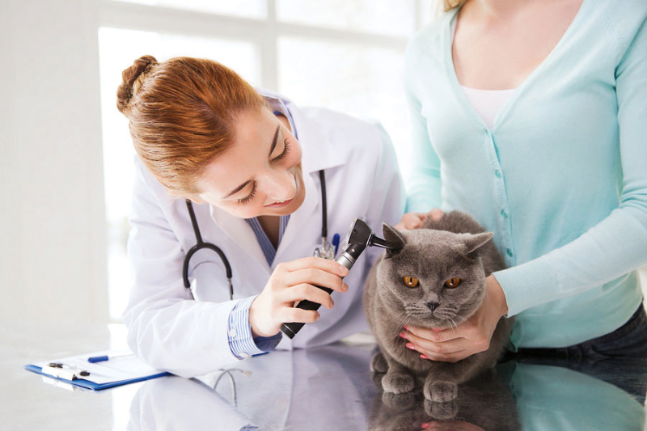Preventive health for your pet
Preventive veterinary healthcare is aimed at preventing illness and maintaining wellness in individual pets, as well as in the “herd” of dogs and cats. Protocols developed in veterinary medicine over the past decades have focused on vaccination programs, parasite control, reproduction control and, more recently, nutritional strategies such as premium pet foods.
For many years, as a recently qualified vet, I recommended the same protocol for all cats and dogs. Puppies and kittens were vaccinated at six, 12 and 16 weeks, then every 12 months for life. They had intestinal worm tablets every two weeks until three months old, then every three months. Heartworm prevention started at 12 weeks of age (for cats as well as dogs) then every month for life, or as an annual vaccine. Flea control (and tick prevention if required) had to be monthly. Desexing occurred at six months, young enough to prevent any accidental reproductive activity. Nutrition consisted of a bag of premium dog or cat dry food.
The role of your holistic vet is to discuss the risks for each individual dog or cat with you, the pet carer, and together decide the best program for your pet.
This program was designed to give our pets optimal heath, nutrition and prevention of disease. At least it was easy to remember, since the same protocol applied to every animal we examined. But in recent years, many of us are questioning the effect of chemical overload on the health and wellbeing of the pets we care for.
Although the preventive treatments we’ve used have been shown to be relatively safe, they do stress your pet’s system. The liver must work hard to metabolise and eradicate them. These chemicals may also stress the gastrointestinal microbiome: the population of beneficial bacteria that play an important role in nutritional, immunological and physiological processes. Some dogs and cats have more obvious adverse side-effects and may become unwell after treatments.
Individualised prevention
So what protocols can we use to prevent illness without overloading our pets? The strategy is to use individualised programs. Each pet has different risks and needs. Some live in tick areas where there is significant increased risk of serious illness or even death from paralysis ticks. For these pets, there are benefits from judicious and informed use of chemicals to prevent or kill ticks. Cats may live entirely indoors and be at little or no risk of infectious disease. For these cats it makes no sense to recommend annual vaccination against infectious viruses. Some puppies have adverse reactions to vaccines, so for them there’s a significantly increased risk to their health with continued vaccination.
The role of your holistic vet is to discuss the risks for each individual dog or cat with you, the pet carer, and together decide the best program for your pet. A minimal vaccine and chemical program might look like the following.
Puppy (or kitten) vaccines, using monovalent vaccines, or the vaccine with smallest number of viruses (usually a C3 or F3), at six and 10 weeks. Followed by a blood test (called a titre test) to check for protective antibodies at 14–16 weeks. This is followed with titre testing at 15 months, then every three years or so, depending on the results.
Kennel cough is a non-life-threatening illness, so kennel cough vaccines are only used if absolutely required by boarding kennels. They are best administered by the intranasal route one month beforehand.
A faecal flotation test can be used to determine the presence of intestinal worms before giving a worming treatment, as an alternative to giving a worm tablet every three months.
Heartworm prevention is still recommended for dogs because heartworm infection, although significantly reduced, has not been eradicated. One approach is giving the heartworm tablet every six weeks instead of monthly. It should be noted this is off-label use. You can also consider breaking from heartworm tablets in cold mosquito-free winter months. Heartworm infection is rare in cats, so unless mosquitoes are prevalent they may not need heartworm prevention.
Tick prevention should be discussed with your local vet, who will best understand the risk in your area. Dogs who travel to tick-prevalent areas should also consider tick prevention. A chemical-free approach would consist of daily checks, short coats in summer and a natural tick repellent such as neem oil. However, if the risk for tick paralysis is high, it may be safer to use a more conventional tick prevention, combined with a seasonal detox.
A minimal approach to flea prevention would focus on environmental flea control. Vacuuming to eradicate flea eggs and larval stages, and washing pet bed covers in water hotter than 60°C, at least every two weeks, will minimise eggs and larval stages in the environment. A daily flea comb will help you keep track of fleas. Neem oil can repel fleas. Use chemical flea control sparingly only if the minimal approach is not working.
A chemical-free diet, using organic “real” foods, under the guidance of your holistic vet will reduce your pet’s ingestion of hormones, pesticides, artificial flavours and preservatives.
For all pets, try breaking from the chemicals in winter, when fleas, ticks and mosquitoes are reduced. Combine this with a short detox, consisting of a simplified diet, plenty of filtered water, a good-quality probiotic to replenish the beneficial gut bacteria, and herbal liver support such as milk thistle.
The above protocol may not be suitable for all pets, so must be discussed with your vet first.








